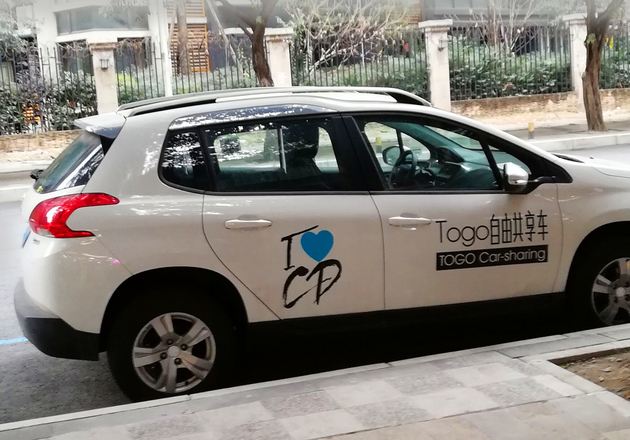
Photo/Zhang Haini (NBD)
Jan. 21 (NBD) -- Just one month after angry users stormed the headquarters of car sharer Togo to claim refund of their 1,500-yuan (221.3-U.S. dollar) deposits per account, employees were seen demanding their unpaid salaries in the offices of the Beijing-based car-sharing firm.
No car was available on Togo's app, CCTV-2, the business channel of China's state broadcaster China Central Television (CCTV) reported on Monday, adding that more than 100 Togo-logoed cars were put up for sale at a roadside in Beijing. Some owners just completed the purchase procedures at the scene, according to CCTV-2.
What Togo is experiencing is an epitome of the financial strain facing many counterparts of Togo, one of China's earliest players in car-sharing. Ever since 2017, a number of car sharers such as Uucars and EZZY have gone out of business, leaving users demanding the return of their deposits.
Behind the unpaid deposits and arrears of wage lie the tight funding chain of the car-sharing enterprises. Despite money raised from investors, some car sharers are piling up debts due to high access threshold of initial investment as well as rocketing operation and maintenance costs.
Assuming it takes at least 100,000 yuan (14,754.9 U.S. dollars) to buy one car, to put 1,000 cars into sharing service will cost 100 million yuan (14.8 million U.S. dollars) at least for the initial investment, let alone the expenses in operation and maintenance.
Suo Peng, operation and maintenance employee with GoFun, a car-sharing platform backed by state-owned Shouqi Group, said that starting with 20 cars, the company have put over 1,000 cars into service so far, and with more cars in the playground and expansion of the service network, workload of operation and maintenance will be intensified.
To make things worse, some car-sharing players have chosen a cash-burning way, including allowing customers to rent expensive cars at a low price, in a bid to penetrate the market rapidly. Such strategies worked well at first, helping companies win public praise, but soon dragged them into struggle of making ends meet.
It's noticed by CCTV-2 that there are currently over 300 registered car sharing companies across China, but none of them has achieved overall profitability.
After a round of reshuffle, only big companies survived in the car sharing race. Car sharing brands which are still in operation are supported by large car-hailing firms or big carmakers such as Shouqi Group and SAIC.
So how will the players remain in the car sharing lane turn a profit and is there any room for them to take off?
In the views of industry insiders, car sharing complements existing means of transportation but can't rely solely on increase in the number of cars for development.
Echoing the opinion, GoFun's CEO Tan Yi said to CCTV-2 that increment in the number of vehicles will pose pressure on existing traffic system in the cities, further noting that companies should experiment with peer-to-peer sharing within boundaries and tap the idle resources.
Email: gaohan@nbd.com.cn


 川公网安备 51019002001991号
川公网安备 51019002001991号





